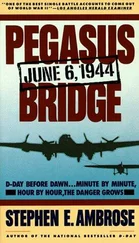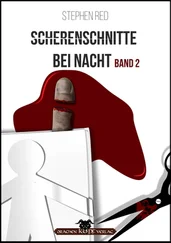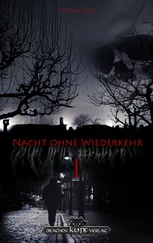Stephen Ambrose - Band of Brothers
Здесь есть возможность читать онлайн «Stephen Ambrose - Band of Brothers» весь текст электронной книги совершенно бесплатно (целиком полную версию без сокращений). В некоторых случаях можно слушать аудио, скачать через торрент в формате fb2 и присутствует краткое содержание. Жанр: История, на английском языке. Описание произведения, (предисловие) а так же отзывы посетителей доступны на портале библиотеки ЛибКат.
- Название:Band of Brothers
- Автор:
- Жанр:
- Год:неизвестен
- ISBN:нет данных
- Рейтинг книги:4 / 5. Голосов: 1
-
Избранное:Добавить в избранное
- Отзывы:
-
Ваша оценка:
- 80
- 1
- 2
- 3
- 4
- 5
Band of Brothers: краткое содержание, описание и аннотация
Предлагаем к чтению аннотацию, описание, краткое содержание или предисловие (зависит от того, что написал сам автор книги «Band of Brothers»). Если вы не нашли необходимую информацию о книге — напишите в комментариях, мы постараемся отыскать её.
Band of Brothers — читать онлайн бесплатно полную книгу (весь текст) целиком
Ниже представлен текст книги, разбитый по страницам. Система сохранения места последней прочитанной страницы, позволяет с удобством читать онлайн бесплатно книгу «Band of Brothers», без необходимости каждый раз заново искать на чём Вы остановились. Поставьте закладку, и сможете в любой момент перейти на страницу, на которой закончили чтение.
Интервал:
Закладка:
The lieutenant made Burgess the lead scout. At first light, he came to a corner of the hedgerow he was following. A German soldier hiding in the junction of hedgerows rose up. Burgess didn't see him. The German fired, downward. The bullet hit Burgess's cheekbone, went through the right cheek, fractured it, tore away the hinge of the jaw, and came out the back of his neck. Blood squirted out his cheek, from the back of his neck, and from his ear. He nearly choked to death.
"I wanted to live," Burgess recalled forty-five years later. "They had hammered into us that the main thing if you get hit is don't get excited, the worst thing you can do is go nuts." So he did his best to stay calm. The guys with him patched him up as best they could, got bandages over the wounds, and helped him into a nearby barn, where he collapsed into the hay. He passed out.
At midnight, a French farmer "came out to the barn and sat there and held my hand. He even kissed my hand." He brought a bottle of wine. On the morning of June 7, the farmer fetched two medics and lent them a horse-drawn cart, which they used to take Burgess down to the beach. He was evacuated to England, then back to the States. He arrived in Boston on New Year's Eve, 1944. He was on a strictly liquid diet until March 1945, when he took his first bite of solid food since his last meal at Uppottery, June 5, 1944.
Private Gordon hit hard. He had no idea where he was, but he had a definite idea of what he was determined to do first—assemble his machine-gun. He tucked himself into a hedgerow and did the job. As he finished, "I noticed this figure coming, and I realized it was John Eubanks from the way he walked." Shortly thereafter Forrest Guth joined them. Another figure loomed in the dark. "Challenge him," Gordon to Eubanks. Before Eubanks could do so, the man called out, "Flash." Eubanks forgot the countersign ("Thunder") and forgot that the clicker was an alternative identification option, and instead said, "Lightning." The man lobbed a grenade in on the three E Company men. They scattered, it went off, fortunately no one was hurt, the soldier disappeared, which was probably good for the group, as he was clearly much too nervous to trust.
Gordon, Eubanks, and Guth started moving down a hedgerow toward the beach. They saw an American paratrooper running through the field, crouch, and jump into a drainage ditch (there was a three-quarters moon that night, and few clouds over the land, so visibility was fair). Gordon told the others to stay still, he would check it out. He crept to the ditch, where "I encountered these two eyeballs looking up at me and the muzzle of a pistol right in my face."
"Gordon, is that you?" It was Sgt. Floyd Talbert. Now there were four. Together they continued creeping, crawling, moving toward the beach. A half-hour or so before first light, Guth heard what he was certain was the howling and whining of a convoy of 2'/2 ton G.I. trucks going past. How could that be? The seaborne invasion hadn't even started, much less put truck convoys ashore. Some tremendous bursts coming from inland answered the question: the noise Guth heard came from the shells passing overhead, shells from the 16-inch naval guns on the battleships offshore.
The E Company foursome joined up with a group from the 502nd that had just captured a German strong point in a large farm complex that dominated the crossroads north of the beach at Ravenoville. They spent the day defending the fortress from counterattacks. In the morning of D-Day plus one, they set out southward in search of their company.
Jim Alley crashed into a wall behind a house, one of those French walls with broken glass imbedded in the top. He was cut and bleeding in several places. He backed into the corner of a garden and was in the process of cutting himself out of the harness when someone grabbed his arm. It was a young woman, standing in the bushes.
"Me American," Alley whispered. "Go vay, go vay." She went back into her house.
Alley found his leg pack, got his gear together (thirteen rounds of 60 mm mortar ammunition, four land mines, ammunition for his M-l, hand grenades, food, the base plate for the mortar and other stuff), climbed to the top of the wall, and drew machine-gun fire. It was about a foot low. He got covered with plaster before he could fall back into the garden.
He lay down to think about what to do. He ate one of his Hershey bars and decided to go out the front way. Before he could move, the young woman came out of the house, looked at him, and proceeded out the front gate. Alley figured, "This is it. I'll make my stand here." Soon she returned. A soldier stepped through the gate after her. "I had my gun on him and he had his on me." They recognized each other,- he was from the 505th.
"Where the hell am I?" Alley demanded. He was told "Ste. Mere-Eglise." He joined up with the 505th. At about daybreak he ran into Paul Rogers and Earl McClung from Easy. They spent the day, and the better part of the week that followed, fighting with the 505th.
All across the peninsula, throughout the night and into the day of D-Day, paratroopers were doing the same—fighting skirmishes, joining together in ad hoc units, defending positions, harassing the Germans, trying to link up with their units. This was exactly what they had been told to do. Their training and confidence thus overcame what could have been a disaster, and thereby turned the scattered drop from a negative into a plus. The Germans, hearing reports of action here, there, everywhere, grossly overestimated the number of troopers they were dealing with, and therefore reacted in a confused and hesitant manner.
Winters had come down on the edge of Ste. Mere-Eglise. He could see the big fire near the church, hear the church bell calling out the citizens to fight the fire. He could not find his leg bag. The only weapon he had was his bayonet, stuck into his boot. His first thought was to get away from the machine-gun and small arms fire in the church square. Just as he started off, a trooper landed close by. Winters helped him out of his chute, got a grenade from him, and said "Let's go back and find my leg bag." The trooper hesitated. "Follow me," Winters ordered and started off. A machine-gun opened up on them. "To hell with the bag," Winters said. He set out to the north to bypass Ste. Mere-Eglise before turning east to the coast. In a few minutes, he saw some figures and used his cricket. He got a reassuring double click-clack from Sergeant Lipton.
Lipton had landed in a walled-in area behind the hotel de ville (city hall) in Ste. Mere-Eglise, a block from the church. Like Winters, he had lost his weapon when he lost his leg bag. In his musette bag he had two grenades and a demolitions kit, plus his trench knife. He climbed over a gate and worked his way down the street, away from the church and the fire. At the edge of town there was a low, heavy concrete signpost with the name of the village on it. Lipton put his face up close to the letters and moved along them, reading them one by one, until he knew that the sign read "Ste. Mere-Eglise."
Paratroopers were coming down around him. Not wanting to get shot by a nervous American, when he saw two coming down close together, he ran right under them. When they hit the ground, before they could even think about shooting, Lipton was already talking to them. They were from the 82nd Airborne, 10 kilometers away from where they were supposed to be. Sergeant Guarnere joined up, along with Don Malarkey, Joe Toye, and Popeye Wynn. A few minutes later, Lipton ran into Winters.
"I saw a road sign down there," Lipton reported. "Ste. Mere-Eglise."
"Good," Winters answered. "I know where that is. I can take it from here." He set out at the head of the group, objective Ste. Marie-du-Mont. They joined a bunch from the 502nd. About 0300 hours they spotted a German patrol, four wagons coming down the road. They set up an ambush, and there Guarnere got his first revenge for his brother, as he blasted the lead wagons. The other two got away, but E Company took a few prisoners.
Читать дальшеИнтервал:
Закладка:
Похожие книги на «Band of Brothers»
Представляем Вашему вниманию похожие книги на «Band of Brothers» списком для выбора. Мы отобрали схожую по названию и смыслу литературу в надежде предоставить читателям больше вариантов отыскать новые, интересные, ещё непрочитанные произведения.
Обсуждение, отзывы о книге «Band of Brothers» и просто собственные мнения читателей. Оставьте ваши комментарии, напишите, что Вы думаете о произведении, его смысле или главных героях. Укажите что конкретно понравилось, а что нет, и почему Вы так считаете.



![Stephen Ambrose - Citizen Soldiers [Condensed]](/books/346737/stephen-ambrose-citizen-soldiers-condensed-thumb.webp)
![Stephan Orth - Behind Putin's Curtain - Friendships and Misadventures Inside Russia [aka Couchsurfing in Russia]](/books/415210/stephan-orth-behind-putin-s-curtain-friendships-a-thumb.webp)





